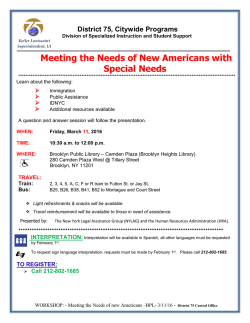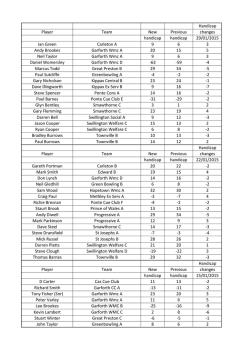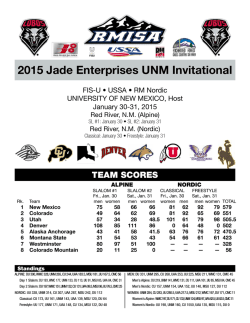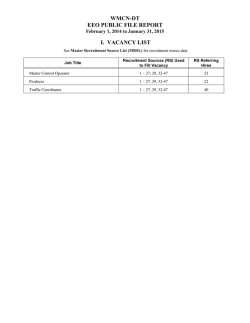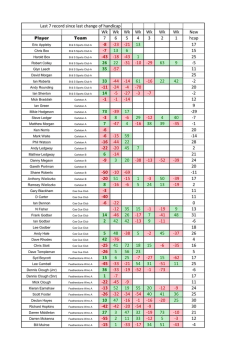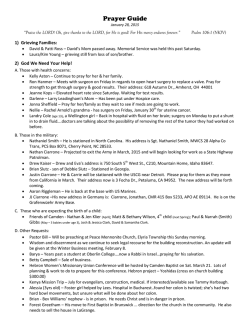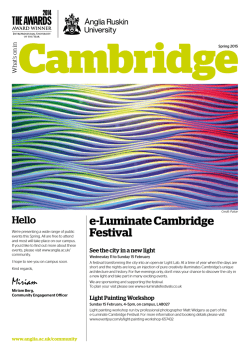
Dear Applicant PA to Principal – 36 hours per week all year round
Dear Applicant PA to Principal – 36 hours per week all year round Grade 5 - £25,541 - £28,231 per annum Thank you for your interest in the post of PA to the Principal. The post represents an exciting opportunity for an exceptional PA to work with and provide professional administrative support to our new Principal. This role is varied and challenging, including liaison with internal colleagues and external organisations at a senior level including offices of chief executives and Government cabinet ministers. No two days will be the same! We take pride in looking after both our students and staff and offer a friendly and welcoming work place. This post offers a generous annual leave allocation, pension scheme, life insurance, disability insurance, family friendly policies and a free course at the College. If after looking at the Job Description you feel you have the relevant skills and experience for this role, please download and complete the WMC Application form. If you would like an informal discussion about this role, please feel free to contact me on: 020 7255 4728 or by email: [email protected] The closing date for this post is 5pm Thursday 29th January 2015. Interviews and assessments will take place on Friday 6th February 2015. This is a set date and if you are unable to make this date, then you should contact me urgently to discuss. Please note that CV’s will not be accepted for this post and you must complete all sections of the application form. I very much look forward to receiving your completed application. Kind regards Jo Turner HR Manager About Working Men's College Working Men's College's background Working Men's College (WMC), the oldest surviving adult education institute in Europe, was founded in 1854 and was associated with the Cooperative Movement and the Christian Socialists, stemming, from the same tradition that led later to the Worker's Educational Association. The Working Women's College, founded 10 years later in 1864, finally merged with WMC in 1967. Early supporters of both have included F D Maurice, John Stuart Mill, Tom Hughes, Dante Gabriel Rossetti, John Ruskin, Ford Maddox Brown, Walter de la Mare and Octavia Hill. Originally based in Red Lion Street, we have been in this listed building in Camden Town since 1905. We have continued to develop the tradition of liberal education and today the College serves the whole community, with women, unemployed and refugee students forming the majority of the student body. We have grown rapidly in recent years but are still small enough to know all our students and to respond to their individual needs. WMC was designated as a Specialist Designated Institution (SDI) under the 1992 Further Education Act. Mission To be a learner-centred college dedicated to widening access to education for all, that will provide opportunities for lifelong learning and improving employment prospects, for the diverse range of London adults who may not be able to study full time, particularly local people who have missed out on their initial education. Objectives Working Men’s College aims to: Provide an outstanding education for adults, in which all learners can achieve their personal, educational and training goals and maximise their potential Provide an inclusive learning environment with all the support necessary to promote equality and diversity, freedom of expression and social responsibility Meet the needs of the local communities with programmes which promote community cohesion and address the problems of disadvantage and deprivation; especially by providing opportunities for local residents to improve their language, literacy and numeracy skills Work in partnership with the London Borough of Camden, other colleges and providers, local voluntary organisations, funding bodies and others who share our goals Work with local employers to meet the demands of a skills-based economy, and with local people to ensure they can get the skills needed to get local jobs Celebrate its unique history and engage positively with the past, while finding new ways to pursue its founders’ aims into the 21st century.
© Copyright 2026
